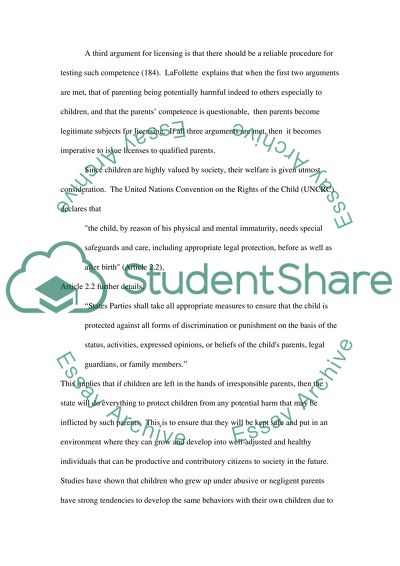Cite this document
(“Should Parents be Subjected to Licencing Essay Example | Topics and Well Written Essays - 1250 words”, n.d.)
Retrieved from https://studentshare.org/religion-and-theology/1453114-licensing-parents-lafollette-argues-that-the-state
Retrieved from https://studentshare.org/religion-and-theology/1453114-licensing-parents-lafollette-argues-that-the-state
(Should Parents Be Subjected to Licencing Essay Example | Topics and Well Written Essays - 1250 Words)
https://studentshare.org/religion-and-theology/1453114-licensing-parents-lafollette-argues-that-the-state.
https://studentshare.org/religion-and-theology/1453114-licensing-parents-lafollette-argues-that-the-state.
“Should Parents Be Subjected to Licencing Essay Example | Topics and Well Written Essays - 1250 Words”, n.d. https://studentshare.org/religion-and-theology/1453114-licensing-parents-lafollette-argues-that-the-state.


